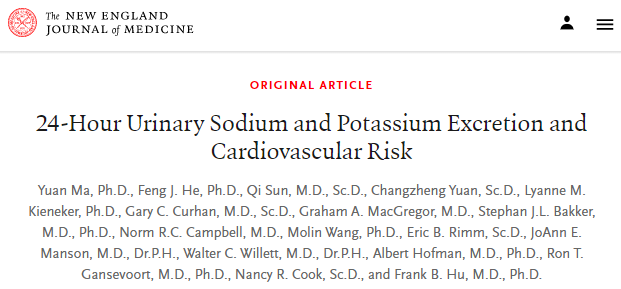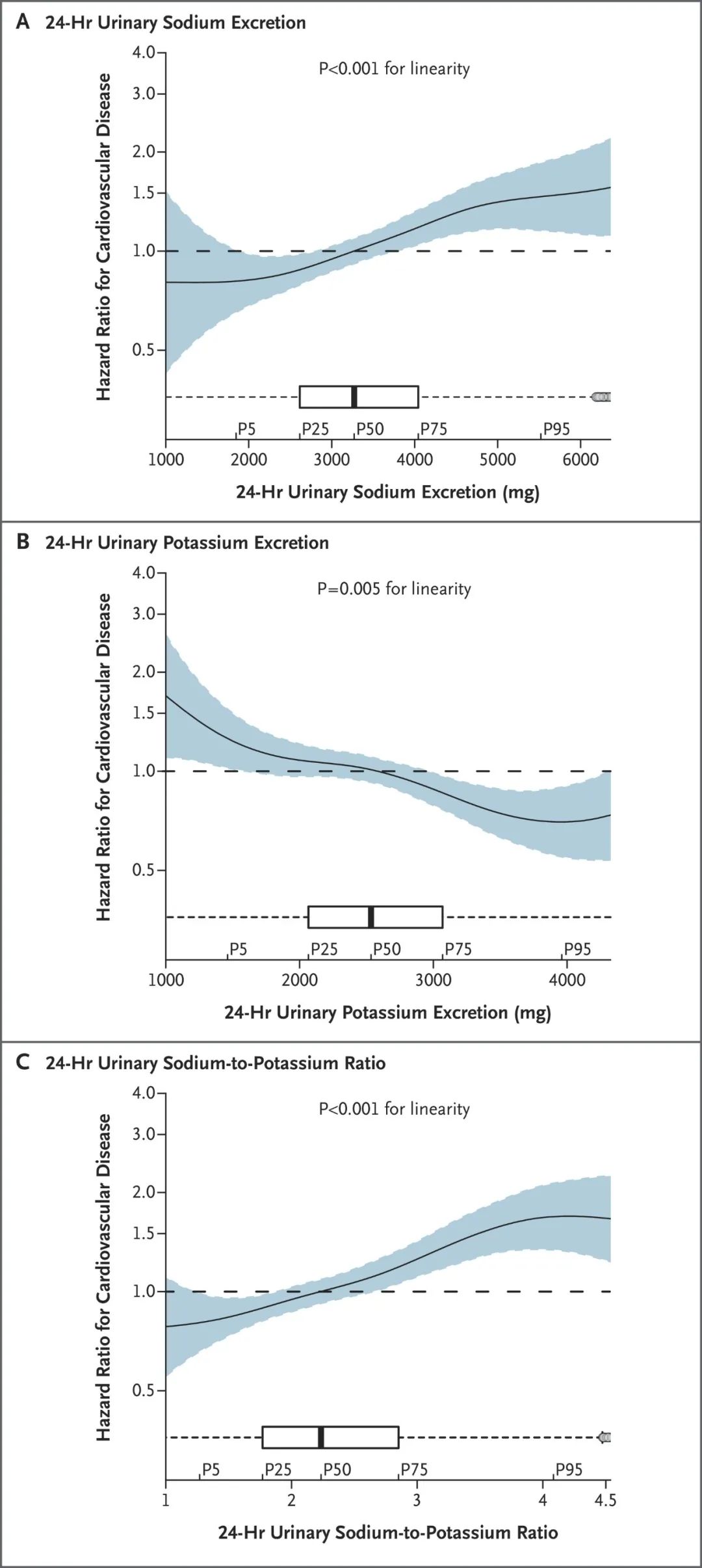High sodium diet increases risks of coronary heart disease and stroke
- Aspirin: Study Finds Greater Benefits for These Colorectal Cancer Patients
- Cancer Can Occur Without Genetic Mutations?
- Statins Lower Blood Lipids: How Long is a Course?
- Warning: Smartwatch Blood Sugar Measurement Deemed Dangerous
- Mifepristone: A Safe and Effective Abortion Option Amidst Controversy
- Asbestos Detected in Buildings Damaged in Ukraine: Analyzed by Japanese Company
High sodium and low potassium diet increases risks of coronary heart disease and stroke
- Red Yeast Rice Scare Grips Japan: Over 114 Hospitalized and 5 Deaths
- Long COVID Brain Fog: Blood-Brain Barrier Damage and Persistent Inflammation
- FDA has mandated a top-level black box warning for all marketed CAR-T therapies
- Can people with high blood pressure eat peanuts?
- What is the difference between dopamine and dobutamine?
- How long can the patient live after heart stent surgery?
High sodium diet increases risks of coronary heart disease and stroke. Harvard team’s study of 10,000 people confirms: high sodium and low potassium diet increases the risk of coronary heart disease and stroke
High sodium intake is generally considered to be the main dietary risk factor for hypertension. Nevertheless, the association between sodium intake and cardiovascular disease is still controversial.
An important reason is that due to the limitations of research methodology, it is necessary to accurately measure a person’s sodium intake and prove its effect on cardiovascular disease.
The impact of the occurrence and development of the disease is not easy.
Recently, the world’s top medical journal, the New England Journal of Medicine (NEJM), published the latest research results of the team of Professor Frank B. Hu from the Harvard School of Public Health.
The results of the research on urinary sodium, urinary potassium excretion and cardiovascular events in nearly 10,000 people The analysis provided strong evidence that high sodium and low potassium intake in the diet are related to increased cardiovascular risk.
The first author of the study is researcher Ma Yuan from the Harvard School of Public Health, the senior author is Professor Hu , and the two scholars are co-corresponding authors.

Screenshot source: The New England Journal of Medicine
Not long ago, NEJM also published the results of a randomized controlled trial of SSaSS conducted in more than 20,000 Chinese people led by Professor Wu Yangfeng’s team at Peking University. The study showed that switching from ordinary table salt to potassium-containing salt can significantly reduce strokes and major heart problems. Vascular events and deaths.
These two heavyweight papers, through high-quality medical scientific research, answer public health issues that have a wide range of impacts and are closely related to daily life, and jointly support dietary recommendations to reduce sodium intake and increase potassium intake.
This study included data from a total of 10,709 healthy adults (mean age 51.5 years, 54.2% women) from 6 prospective cohort studies, and performed a meta-analysis to merge the results. In the corresponding cohort study, each person collected at least two 24-hour urine samples to assess the excretion of sodium and potassium.
At present, assessing 24-hour urine excretion within multiple days is considered a more accurate method. This is because each person’s daily sodium intake may fluctuate greatly, and a single 24-hour urine sample is not enough to represent a person’s daily routine. Sodium intake.
Based on the analysis of a total of 37,896 urine samples, the researchers estimated that the median total daily sodium intake of these healthy adults was 3.5 g (range is approximately 2 g – 6 g, which is approximately equivalent to 5.1 g-15.2 g of table salt) ), the median daily total potassium intake was 3.3 g (10% quantile 2.2 g, 90% quantile 4.7 g).
During the median follow-up period of 8.8 years, the study collected a total of 571 cardiovascular events, including 213 coronary revascularization (heart implantation or heart bypass surgery), 232 myocardial infarction, and 136 strokes (22 of them). Cases also had myocardial infarction) and 12 additional deaths from cardiovascular causes.
After excluding other potential influencing factors, statistics show that higher sodium excretion, lower potassium excretion, and higher sodium-to-potassium ratio are all significantly associated with an increased risk of cardiovascular events.
Compared with the 25% of the population with the lowest urinary sodium excretion, the 25% of the population with the highest urinary sodium excretion had a 60% higher risk of cardiovascular events.
Compared with the 25% of the population with the lowest urinary potassium excretion, the 25% of the population with the highest urinary potassium excretion had a 31% lower risk of cardiovascular events.
Compared with the 25% population with the lowest sodium-to-potassium ratio, the 25% population with the highest sodium-to-potassium ratio has a 62% higher risk of cardiovascular events.
The research team also observed a clear linear relationship.
- For every 1 g increase in daily urinary sodium excretion, the risk of cardiovascular events increases by 18%.
- Every increase in daily urinary potassium excretion by 1 g reduces the risk of cardiovascular events by 18%.
- For every unit increase in the sodium-to-potassium ratio, cardiovascular risk increases by 24%.

▲The relationship between 24-hour urine sodium (A), urine potassium (B), sodium-to-potassium ratio (C) and cardiovascular risk. (Image source: Reference [1])
Further subdividing different diseases, for coronary heart disease and stroke, a linear correlation trend with high sodium and low potassium was also observed.
In addition, the research team specifically pointed out that if only a single 24-hour urine sample is used, the association between high sodium and low potassium and cardiovascular disease will be weakened, similar to other previous studies, which also reflects the use of multiple times in this study. Methodological advantages of the sample.
With the publication of these heavy pieces of evidence, it is expected that reducing dietary sodium intake and appropriately increasing potassium intake will receive more attention, so as to effectively prevent hypertension and cardiovascular disease through such a low-cost method.
Reference
[1] Yuan Ma, et al., (2021). 24-Hour Urinary Sodium and Potassium Excretion and Cardiovascular Risk. The N Engl J Med, DOI: 10.1056/NEJMoa2109794
High sodium diet increases risks of coronary heart disease and stroke
(source:internet, reference only)
Disclaimer of medicaltrend.org
Important Note: The information provided is for informational purposes only and should not be considered as medical advice.



